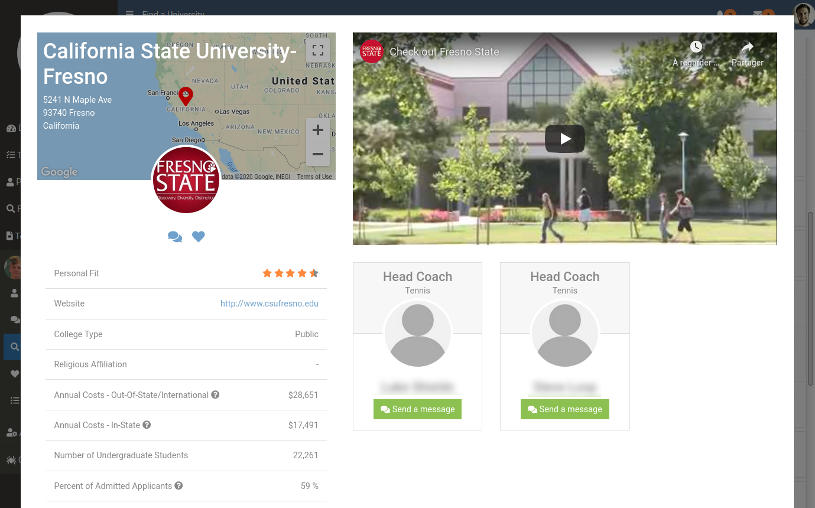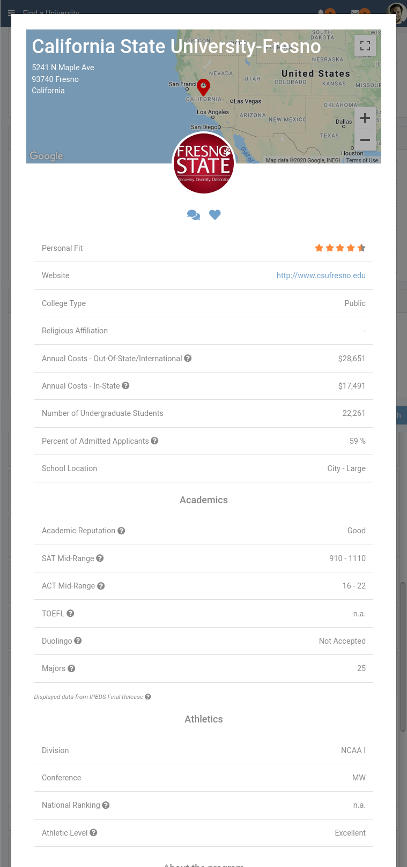Test format
The IELTS test is offered by the British Council, with the short name standing for: International English Language Testing System. As for the TOEFL or Duolingo English Test, the IELTS test result is one of the most common and important qualifications needed by universities' international admissions offices to asses if you have what it takes to succeed in your studies.
The IELTS Academic test uses a 9-band scale, with 1 being the lowest and 9 the maximum score possible. It is important to differ between IELTS Academic and IELTS General Training, as the first one is offered for students wanting to pursue a higher education degree, following high school graduation. The band score you receive assigns a level to your English skill set:
- 1. Non-user
- 2. Intermittent user
- 3. Extremely limited user
- 4. Limited user
- 5. Modest user
- 6. Competent user
- 7. Good user
- 8. Very good user
- 9. Expert user
The IELTS follows the same structure as the TOEFL test, with 4 sections offered, all carrying the same weight towards your overall band score:
Reading
The reading section consists of 40 questions in total with the readings stemming from areas typical for university entrance classes. Think text passages taken from magazines, newspapers, books or essays.
There are 11 different types of questions asked. This could be a task format, such as “sentence completion”, “matching headings” or “identifying information”. Don't be scared off by these technical descriptions. Everything you will come across is usually something you have been faced with in one way or the other in high school before.
Each question is worth 1 mark and thereafter converted into the 9-band scale. The reading section takes a total of 60 minutes!
Listening
During 30 minutes, the listening section will test your ability to process information that you hear, split in 4 different listening tasks:
- Conversation between 2 people
- Conversation between up to 4 people
- 2 monologues (1x everyday social context, 1x on an academic subject)
Again, you will be receiving 40 questions, each answer given the same scoring weight. Bear in mind that accents and dialects heard will be different, such as British, American or Australian native speakers. Also, bear in mind that poor spelling or grammar on open questions is being penalized by the examiners!
Writing
The writing section is split in 2 parts:
- Writing task 1 (20 minutes, min. 150 words) – describing visual information (graphs, diagrams, pie charts, etc.)
- Writing task 2 (40 minutes, min. 250 words) – response to an argument/problem/point of view
You won't get more points for writing significantly more words than the required minimum, but you will get penalized if you arrive at fewer words than the minimum. Also bear in mind that Task 2 is worth more points than Task 1 and you definitely don't want to use too much time trying to make Task 1 just a bit more perfect.
Speaking
The speaking section is the biggest difference to the TOEFL test. You actually get to meet (or “e-meet”) a real person and you have an oral interview for 11 – 14 minutes. Those of you disliking the idea of recording your answers on computer only (as is the case for the TOEFL), may feel that the IELTS test is a better fit. Also, depending on the test center, you may be able to conduct the interview up to a week before or after the rest of the test!
- 4-5 minutes, including questions on yourself, family, hobbies, your interests
- 2 minutes, including 1-minute preparation time; you are asked to speak about a certain topic and answer some questions after your initial monologue
- 4-5 minutes, a discussion between the interviewer and you, building on the second speaking task
Examiners will pay attention to word usage, pronunciation, fluency, and grammar.
Read up in more detail on the 4 sections on the IELTS Website: IELTS Test Format
Be realistic about your level of English.
Example: if you score 4 on your first IELTS test and your dream school requires 7, it will almost be impossible for you to reach such a high score. You should rather pursue schools with a minimum requirement, such as an IELTS of 4 or 5.
IELTS test dates
We always speak ACT/SAT test with our athletes first. Why is that?
Unlike those tests, which are only offered internationally 6-7 times a year, the IELTS test is typically offered several times each month. In some countries, we're talking 6-7 times a month and in other countries only once or twice. This allows for a lot more flexibility, as the test is basically offered year-round.
Bear in mind that available test dates depend on your country of residency and you will need to register with an IELTS account to get an overview on which test is available in your region and also what the final price tag of the test will be.


Research Colleges
Find a school's required minimum TOEFL score on each university profile.
Test preparation
You can best prepare for the IELTS in 3 ways:
- Sample practice questions
- Official IELTS practice material
- Any kind of preparation course offered locally or by other digital prep courses
Sit down with your family - perhaps even your high school English teacher - and decide which preparation could work best for you.
A good idea might be to get started with the free resources available on the IELTS website and decide how to proceed thereafter. Also, bear in mind that a slightly better IELTS score may often be the decisive factor between getting accepted by a school or not, but most financial aid offices do not use IELTS scores for their academic scholarship offers.
"The IELTS (TOEFL or Duolingo) is extremely important for college coaches recruiting you. You can look great on coaches' checklist, but not meeting the schools' IELTS requirement can make it an impossible task for them to recruit you."
IELTS registration
Register for the IELTS test by using the online registration system: IELTS registration. Fees vary depending on the test location, but you should expect a price of approximately 220 USD (the equivalent in your local currency).
Your IELTS result is “recommend to be valid” for 2 years following your test, but ultimately up to the institution requiring you to present an IELTS score.
Next Read
Read up on the other 2 English tests, which colleges in the U.S. typically require and accept for admission purposes: TOEFL and Duolingo.